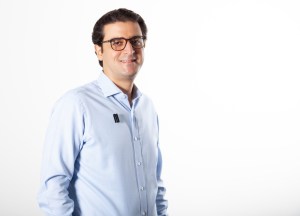U.S.-based online university platform Nexford University has raised $8 million in a Series A round co-led by New Markets Venture Partners and Learn Capital, two prominent edtech venture capital firms in the U.S. that have invested in Pathstream, Udemy and Coursera. New Markets Venture Partners general partner Jason Palmer and Learn Capital managing partner Greg Mauro will join Nexford’s board.
The tech-enabled startup, launched by Fadl Al Tarzi in 2019, is filling affordability and relevance gaps in education. As the traditional university experience hasn’t changed in many years, edtechs like Nexford are pioneering a paradigm shift in higher education that puts learners first, giving them the skills to succeed in the present and future.
Nexford University provides learners with a fully online education and lets them study at their own pace. Once learners apply and get admitted into either a degree or a course program, they choose how fast or slow they want the program to be. Nexford’s most significant markets are traditionally underserved English-speaking communities like Nigeria. The West African country is the only market where the U.S.-based edtech has learning community spaces that helps learners circumvent infrastructural problems like internet and transportation. The company plans to launch such centers in markets like Kenya and the Philippines.
Nexford University offers the same programs as last year. Bachelor degrees include courses in business administration, AI and automation, business analytics and product management; business administration, advanced AI, e-commerce, hyperconnectivity, sustainability and world business courses are programs for graduate degrees. In a recent interview with TechCrunch, CEO Al Tarzi said his company plans to add more programs, such as software engineering, data science, clean energy, business analytics, digital marketing and project management in the coming six to twelve months based on the demand from learners.
The chief executive also mentioned that Nexford intends to launch several pathway programs — six-month programs designed to equip learners with the skills they need to get specific jobs across five vertical areas, including the aforementioned new courses — to complement its degree programs.
“The pathway programs are also going to stack into our degree programs,” he said. “So what that means is, when you complete the pathway program, if you want to continue and earn a master’s or a bachelor’s degree, you’ll be able to do that,” he said. “But if you’ve got a job and want to come back a few months later, you’d also be able to do that. So the pathway will give you the skills you need and a certain percentage towards a formal college degree.”

CEO Fadl Al Tarzi
This stackability factor is one of the several ways Nexford differs from traditional institutions, Al Tarzi said. He also lauds the platform’s daily academic support and affordability, adding that conventional universities in the U.S. can charge as much as thrice or quadruple Nexford’s price for the pathway programs. For instance, Nexford’s accredited degrees cost between $3,000 to $4,000 (which are paid in monthly installments), but the average annual tuition for a master’s degree in the U.S. is about $36,000.
Regardless of cost and unique selling propositions, edtech platforms should prioritize outcomes. And in the three years of Nexford’s existence, measuring outcomes has changed. Many traditional and new edtech upstarts measure learning outcomes by placements. For Nexford, it’s just one of three, including getting a promotion and increased salary and real-life application of courses in growing a business as an entrepreneur.
“I think one of the most fundamental developments we have had is that we have a lot more learner data now and outcomes data that gives us higher confidence that our alumni are succeeding post-graduation,” the CEO said. “In our latest survey, we saw that about 92% achieved that.”
Inwardly, the edtech platform also wants to improve operations by becoming profitable. Al Tarzi said Nexford operates positive margins coming off the back of a 2x revenue in 2021 compared to the previous year, and enrollments increasing from 70 countries to 90+ this year.
Last June, the three-year-old startup announced a $10.8 million pre-Series A round. It appears to be a down round; however, Al Tarzi disagrees, saying the company’s Series A valuation is relatively higher than its last raise and cites the drop in funding size to a “significantly oversubscribed and extended” pre-Series A.
Participating investors in its Series A round include the Learn’s Emerging Markets Fund anchored by International Finance Corporation (IFC), Bisk Ventures, Global Ventures, Future Africa, the U.K.-based investment firm AMK Investments and the Future of Learning Fund.
Nexford, in a statement, said proceeds will take it into new markets, broaden the company’s academic offerings, including career pathway programs, and enhance its technology infrastructure. “We will continue to invest in product and geographical expansion and technology. The latter enables us to operate as efficiently as we do, so we won’t need to increase our tuition fees,” the CEO said. “Last year, we decreased customer retention costs by almost 50% and that’s directly due to operational efficiencies enabled by technology. So we’ll keep investing in technology to increase efficiency and keep learner’s tuition fees now.”
Online university Nexford will use $8M to plug affordability and relevance gaps in education by Tage Kene-Okafor originally published on TechCrunch















 English (US) ·
English (US) ·